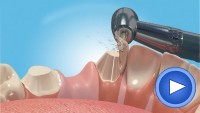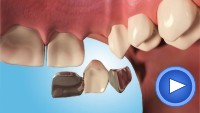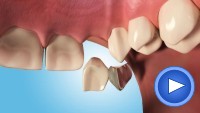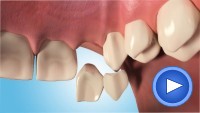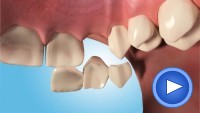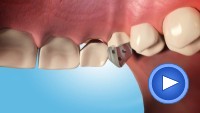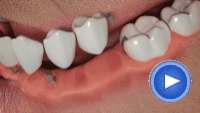BRIDGES
A bridge is where one or more missing teeth are replaced by using adjacent teeth or dental implants to support them.
There are three main types of dental bridges:
Traditional bridges - The tooth or implant on either side of the space are crowned, with the missing teeth in between.
Cantilever bridges - Made of either porcelain fused to metal or ceramic and used when it is only possible to use teeth only one side of the missing tooth or teeth.
Maryland or resin-bonded bridges - Made of plastic teeth and gums supported by a metal framework. Metal wings are bonded to your existing teeth with little or no tooth reduction required.
We shape the teeth so that, they will be the same size and shape as a normal tooth when the artificial bridge is fitted. The time this takes will depend on the amount of damage, if any to the supporting teeth, the number of teeth to be prepared and the size of the bridge.
We may need to make a supportive core first, either directly onto a tooth or by placing a peg inside it. An exact impression is taken of what remains of the supporting teeth or implants (if used) so that a dental technician can make the bridge.
Whilst the bridge is being made, which normally takes about two weeks, a temporary bridge made of plastic may be fitted. You can bite on a temporary bridge but it is not as strong as the finished one. During the bridge fitting stage, we may need to make small adjustments to make sure you are comfortable with it. It is then cemented into place. We will then show you the best way of keeping your bridge clean.
Benefits
1. Most bridges let you almost forget that you have missing teeth.
Alternatives
A removable partial denture.




